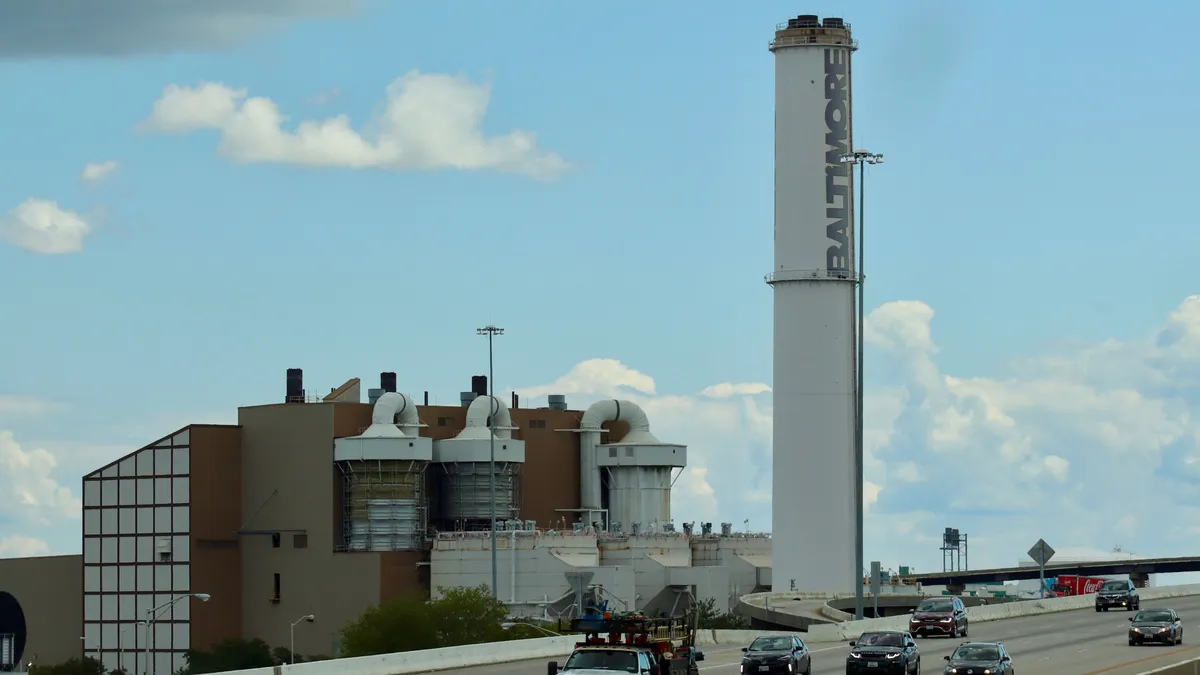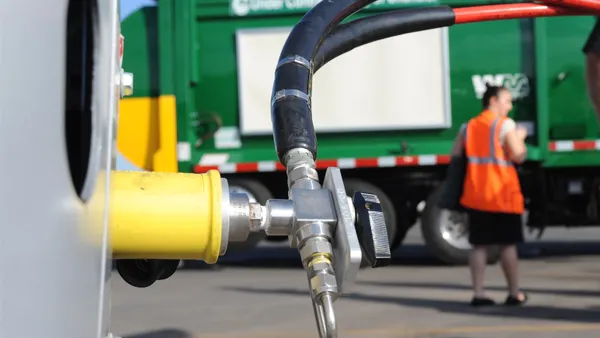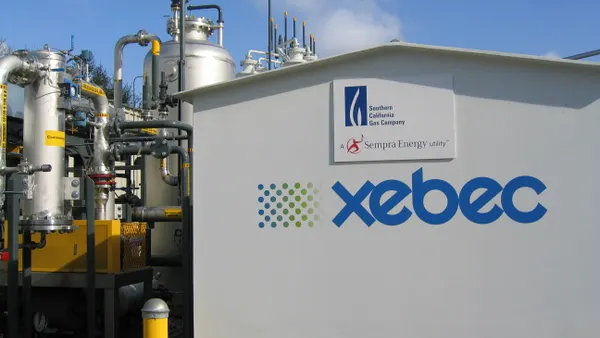Dive Brief:
- Baltimore has granted Wheelabrator an extension to continue operating an incinerator owned by the Northeast Maryland Waste Disposal Authority until Dec. 31, 2031. The company would invest $39.9 million in emissions control upgrades, in a nod to community concerns around air pollution. Wheelabrator's contract is set to expire at the end of 2021.
- The city's Board of Estimates approved the extension on a 3-2 vote this morning. Multiple attendees slammed the day-after-election timing, with several community members calling it "appalling" and "inappropriate." A legal action challenging the approval has been filed by the Energy Justice Network (EJN), Trilogy Financial Group, and City Councilmembers Mary Pat Clarke and Ed Reisinger.
- At the heart of the back-and-forth is the city's 2019 Clean Air Act, which spurred Wheelabrator to sue. Court documents show that litigation is ongoing, although the new agreement would settle the case now. Acting City Solicitor Dana Moore said Baltimore was not in a strong position to win that suit, which played a role in the city's decision.
Dive Insight:
The Nov. 4 board meeting laid bare tensions around the future of Baltimore's solid waste incinerator, long a source of controversy. Opponents of the extension questioned the meeting's timing and criticized lame-duck Mayor Bernard Young's pursuit of the agreement.
"We haven't had the opportunity to have good faith dialogue with the principal actors," said Greg Sawtell, a leadership organizer with the South Baltimore Community Land Trust.
The facility brings in more than $7 million annually for Baltimore in host fee revenue and is a primary destination for local waste. But concerns about environmental justice issues have mounted in recent years as opponents have called for the facility to close.
Last year, the Baltimore City Council unanimously passed strict clean air regulations that would require the city's incinerators to monitor 20 different pollutants, with another two (nitrogen oxides and dioxins) set to be added in January 2022.
Wheelabrator and the Curtis Bay Medical Waste Services both sued, and were joined by the Energy Recovery Council, the National Waste & Recycling Association, and TMS Hauling. EJN later filed an amicus brief in favor of the city. The Local Government Coalition for Renewable Energy – a group of incinerator operators from multiple states – filed its own supporting brief in favor of the plaintiffs.
In February, Baltimore agreed to a stay of the Clean Air Act while waiting for the lawsuit to be resolved. Judge George Russell ruled against the city in March, finding the ordinance at odds with state and federal regulatory authority. A month later, Baltimore said it would appeal that decision. But Moore, the acting city solicitor, said Wednesday the city's move to extend its contract with Wheelabrator reflects legal realities.
"From our strong, thorough legal analysis there was a good chance that we would not [win the] appeal," she said.
The agreement would settle the case and establish emissions limits that meet the city's air regulations, with the exception of nitrogen oxides. Those would be reduced by "nearly 50%" of current levels to 105 parts per million dry volume, per the Wednesday meeting agenda. Stack emissions will be tested three times per year to gauge compliance.
Opponents say that isn't enough, and some community members targeted City Council President Brandon Scott, who won last night's mayoral election and previously pledged to close the incinerator. He has since backtracked and expressed support for extending Wheelabrator's contract as leverage in the effort to reduce emissions. In his closing remarks, Scott said on Wednesday he intends to keep Baltimore focused on long-term "zero waste" goals and move away from incineration, despite the extension.
Young and Scott did not respond to requests for comment prior to the meeting. A spokesperson for Wheelabrator said via email the company is "pleased" with the agreement.
"The installation of additional air-quality controls ensures Wheelabrator Baltimore will achieve among the lowest emissions of any waste-to-energy facility in the nation," the spokesperson said.
It is unclear whether opponents of the agreement extension have a path to success through their late-stage legal challenge. EJN Founder and Director Mike Ewall said on a call prior to the board meeting that he hoped officials would "do the appropriate thing and delay" the agreement. Councilmember Clarke also indicated her disappointment.
"Basically, I'm concerned about 10 years of incineration, in the very time of our lives when it is crucial for global warming, that local governments contribute by eliminating incineration," she said.
Baltimore County, which was engaged in its own suit with Wheelabrator, has also opted to extend its contract. Baltimore Brew reported County Executive Johnny A. Olszewski Jr. offered to extend the county's agreement into September 2026, which was approved Monday night. Under that agreement, the county will provide at least 215,000 tons of waste annually to the facility, paying nearly $59 million in fees.
This article has been updated to include a statement from Wheelabrator.










